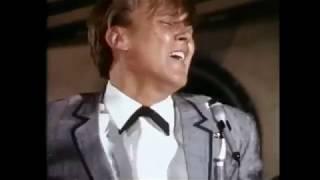"Cecilia" is a song written by US musician Paul Simon. It was first recorded by Simon and Garfunkel for their 1970 album Bridge Over Troubled Water. When released as a single, it reached #4 in the US charts. The single did not chart in the UK, despite being released as the follow-up to Simon and Garfunkel's number one hit "Bridge Over Troubled Water".
The "Cecilia" of the title is generally interpreted as being a capricious lover, causing both anguish and jubilation to the singer. However, another interpretation[1] is that Cecilia might refer to St. Cecilia, patron saint of music in the Catholic tradition, and thus the song might refer to the frustration of fleeting inspiration in songwriting. St. Cecilia is mentioned in another Paul Simon song, "The Coast" (from his 1990 album The Rhythm of the Saints): "A family of musicians took shelter for the night in the little harbor church of St. Cecilia."
The song's recording is also quite funny. The Song's foundation was a percussion track in the house Paul was renting on Blue Jay Way in LA. Paul and Art slapped their thights, Eddie Simon thumped a piano bench and a friend strummed a guitar with its strings slackened to the point of atonailty. Roy Halee did the rest.
The "Cecilia" of the title is generally interpreted as being a capricious lover, causing both anguish and jubilation to the singer. However, another interpretation[1] is that Cecilia might refer to St. Cecilia, patron saint of music in the Catholic tradition, and thus the song might refer to the frustration of fleeting inspiration in songwriting. St. Cecilia is mentioned in another Paul Simon song, "The Coast" (from his 1990 album The Rhythm of the Saints): "A family of musicians took shelter for the night in the little harbor church of St. Cecilia."
The song's recording is also quite funny. The Song's foundation was a percussion track in the house Paul was renting on Blue Jay Way in LA. Paul and Art slapped their thights, Eddie Simon thumped a piano bench and a friend strummed a guitar with its strings slackened to the point of atonailty. Roy Halee did the rest.
- Category
- Pop
Sign in or sign up to post comments.
Be the first to comment


